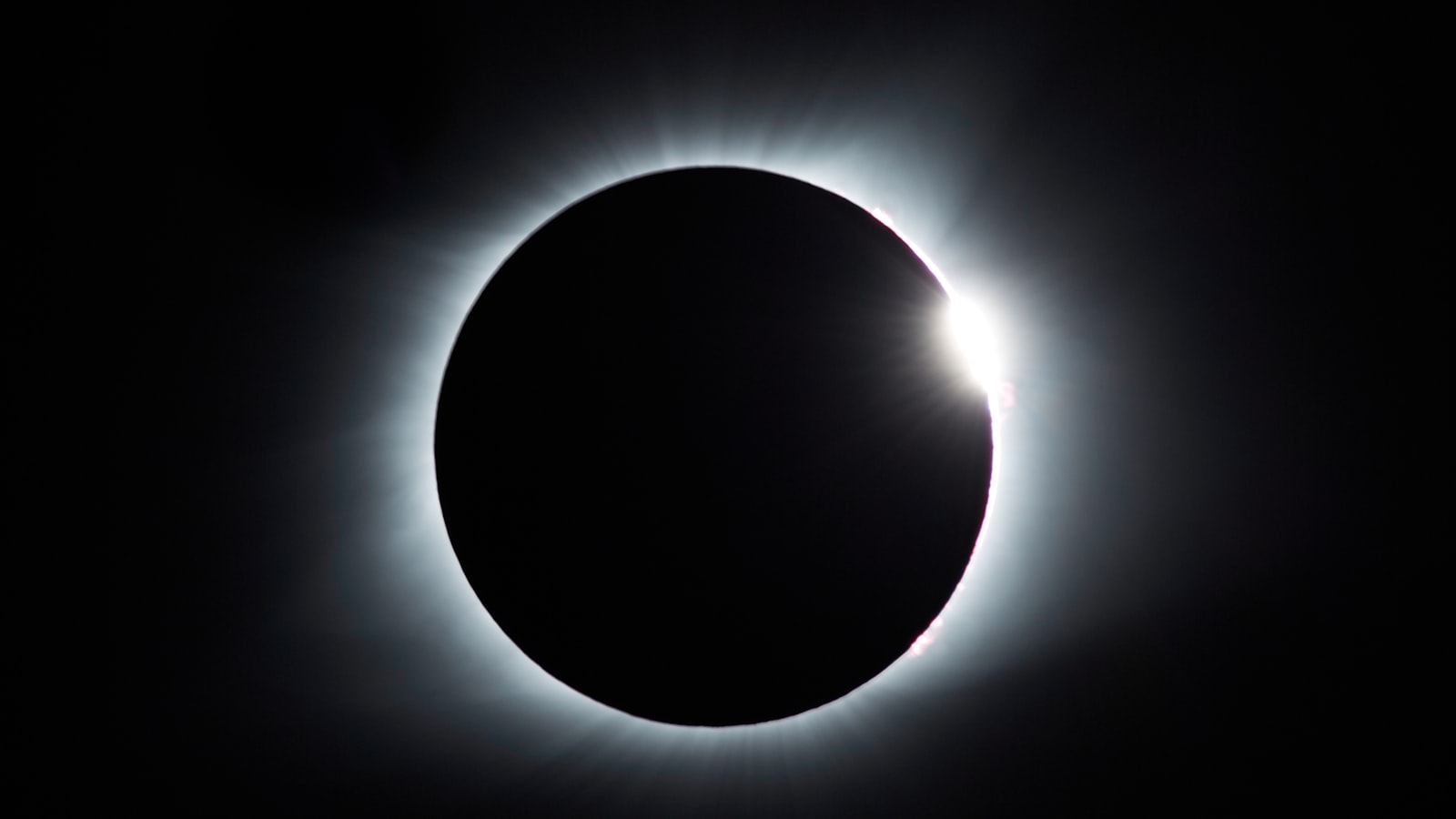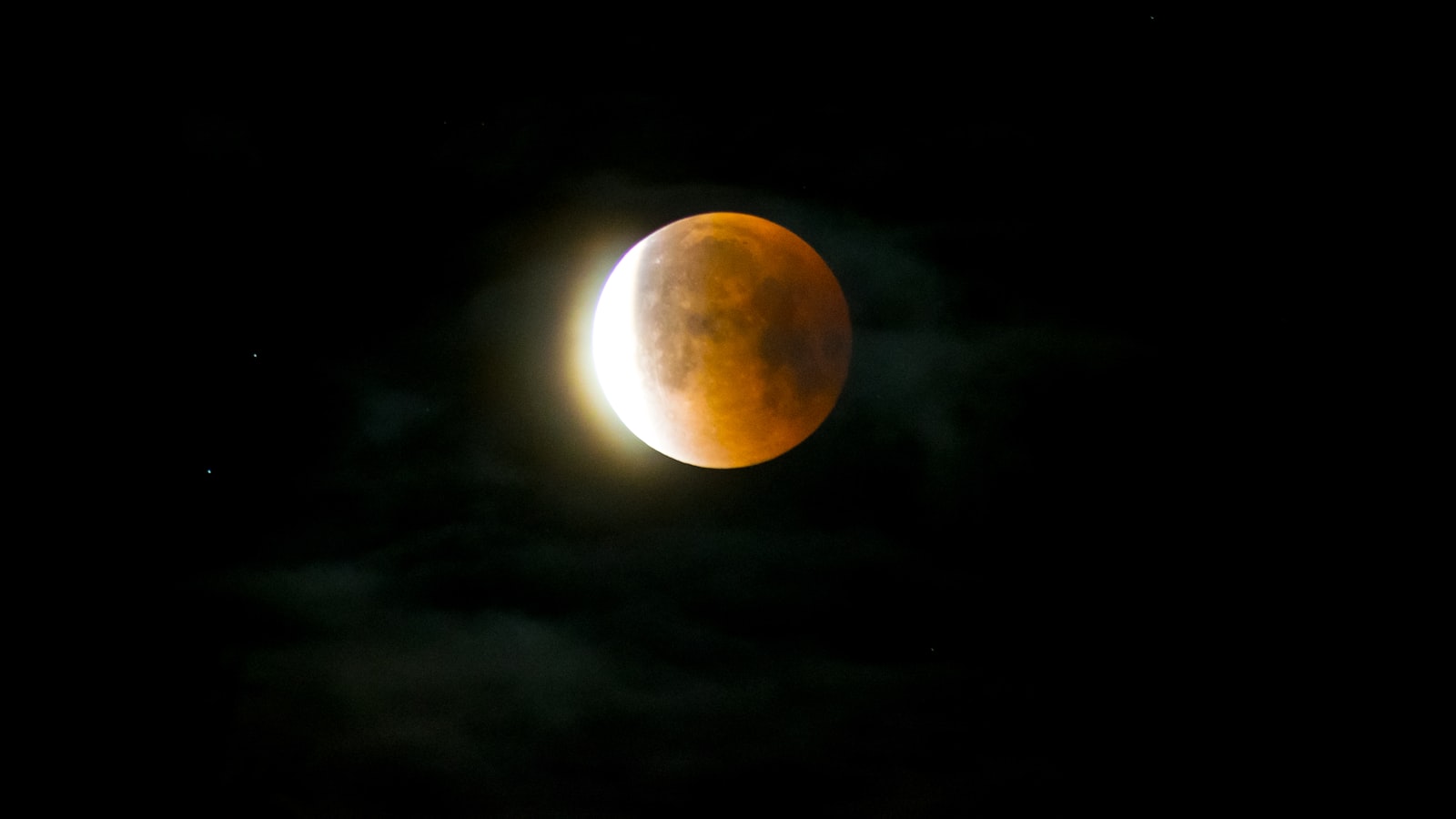The Magic of the Cosmos: Unveiling the Spectacle of Eclipses
"Two celestial events that have had humanity in awe since the dawn of time: the solar and lunar eclipses. These cosmic dances, while similar in their celestial choreography, perform differing shows in the theater of the sky." Eclipses have always been a source of wonder, a spectacle that has birthed myths, influenced cultures, and continues to excite both astronomers and the general public alike. But as with any grand performance, understanding the nuances of solar and lunar eclipses helps us appreciate them even more.
A Tale of Shadows and Light

The Solar Eclipse: Day Turns to Night
A solar eclipse is an awe-inspiring occurrence where the Moon passes between the Earth and the Sun, covering the Sun's light, either partially or fully. The rarity of this event and the dramatic change from day to night during a total solar eclipse is what draws millions of gazers skyward.
To ensure you never miss this stellar experience, a handy tool like eclipse-timer.com can be your personal celestial timetable, providing the precise time and date of upcoming solar eclipses in your area or around the globe.
Partial, Total, and Annular Solar Eclipses
Solar eclipses come in different flavors, each with its own set of characteristics. The partial solar eclipse occurs when only a portion of the Sun is obscured. In contrast, the total solar eclipse offers a full blackout, revealing the Sun's ethereal corona. The annular eclipse, the 'ring of fire,' happens when the Moon is too far from Earth to completely cover the Sun, leaving a mesmerizing ring visible.
The Lunar Eclipse: Earth's Shadow at Play

Lunar eclipses happen when the Earth finds itself sandwiched between the Sun and the Moon, casting a shadow on our lunar companion. Unlike its solar counterpart, lunar eclipses are more common and visible from anywhere on the night side of Earth, requiring no protective eyewear to enjoy the ruddy glow of a blood moon.
Penumbral, Partial, and Total Lunar Eclipses
The level of drama in lunar eclipses varies too. During a penumbral lunar eclipse, the Moon passes through Earth's faint outer shadow, resulting in slight shading. A partial lunar eclipse gives us a celestial bite taken out of the Moon, and the total lunar eclipse fully immerses the Moon in Earth's shadow, often tinting it a deep, rusty red.
Understanding the Science Behind Eclipses
Eclipses do more than provide us with stunning shows; they're a powerhouse of scientific discovery. Have you ever wondered how lunar eclipses helped us understand Earth's atmosphere? Or how solar eclipses have advanced our knowledge of the Sun's structure? This interplay of celestial bodies has inadvertently taught us much about our own planet and the greater cosmos.
Predicting Eclipses: Not As Easy As It Looks
Predicting eclipses is a sophisticated dance of astronomy and mathematics. Ancient civilizations, like the Babylonians and Mayans, became adept at forecasting these events, but today's predictions are precision personified, thanks to complex celestial mechanics.
To stay informed about the next performance of this astral ballet, bookmark a site like eclipse-timer.com to keep you in the loop.
Witnessing the Spectacle: When and Where
Eclipses are predictable, but still require you to be in the right place at the right time. Here’s where a sprinkle of strategic planning comes into play.
Best Places to Catch a Solar Eclipse
For the most spellbinding views of a solar eclipse, you'll want to be in the path of totality where the Sun is completely covered. These locations change with every eclipse, so a quick check on eclipse-timer.com will give you the info you need to start booking your next eclipse-chasing adventure.
Moon-gazing for Lunar Eclipses
Lunar eclipses offer a more lenient viewing experience, as anyone on the night side of Earth during the event can witness the transformation. Still, being in a region with clear skies and minimal light pollution will provide the best views of the moon’s dramatic color shift.
Capturing the Moment: Eclipse Photography

Are you itching to capture the magic of an eclipse? Astrophotography can be a gratifying hobby, but it demands some preparation. Solar eclipses, especially, call for special filters to protect both your eyes and camera sensor. Time to dust off that DSLR, charge your batteries, and put your photography skills to the test.
The Cultural Impact of Eclipses
Eclipses are not just celestial events; they are steeped in history and culture. From being omens of doom in some societies to symbolizing the renewal of life in others, these cosmic occurrences have greatly impacted human history and mythology. Their influence is a testament to the power of natural phenomena in shaping our collective imaginations.
Did You Know? – Interesting Eclipse Facts
- The term "eclipse" comes from a Greek word meaning "abandonment." Quite fitting, as it seems like the Sun or Moon is abandoning us during these events.
- Solar eclipses helped validate Einstein's theory of General Relativity when light from stars was observed bending around the Sun's mass.
- The longest possible duration of a total solar eclipse is about 7.5 minutes, but most last for only a couple of minutes.
Conclusion: The Endless Fascination
As our journey through the differences between solar and lunar eclipses comes to an end, it's clear that our fascination with these astronomical events is as limitless as the universe. They remind us of the grand tapestry of space we're a part of and of the ongoing dance between light and shadow.
Remember, these celestial events are more than just awe-inspiring; they're opportunities for unity, as people worldwide turn their gaze skyward. So, the next time you mark your calendar using eclipse-timer.com, remember you're joining a global community of skywatchers, all in anticipation of nature's grand show.
Now that you're an eclipse connoisseur, which type do you think is more spectacular, and why? Feel free to leave your thoughts and eclipse experiences in the comments below. Happy eclipse hunting!



















